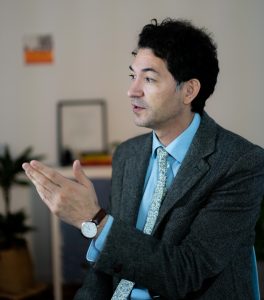The Unknown Fate of Women’s Rights in a Post-peace Society

Some researchers believe that the Taliban’s lack of clarity on women’s rights in government after the peace agreement may mean that the group does not change its beliefs about women.
In an interview the CSHRN, Dr. Sayed Asif Hosseini said that the Taliban have not given a clear answer on the issue of women’s rights, which means that they are trying to suppress women. “The Taliban have not given a clear answer about women’s rights in a possible post-peace society, which means that they are trying to oppress women, even if they are not as successful as they used to be. This group has not changed its ideological beliefs.”, said Dr. Sayed Asif Hosseini.
CSHRN: Can the presence of women in peace talks affect the group’s anti-feminist approach?
Hosseini: The presence of women in the talks is certainly good, but the reality is that it has no effect on the peace process with a group that does not recognize women and their presence.
CSHRN: Do women in the government’ negotiating team have the competence and ability to represent women and defend their rights?
Hosseini: Yes, I think they are qualified enough to face the Taliban, but the argument is that on the one hand they can say nothing beyond the government’s agenda, and on the other hand the Taliban do not recognize their presence and see it as symbolic.
CSHRN: Should the government accept restrictions on women’s rights?
Hosseini: The government must stubbornly resist any restrictions on women’s rights. Women’s rights in the current context of Afghan society are in fact the red line of all political issues. If the active presence of women in society is guaranteed, society will move forward for the better.
CSHRN: Apart from security issues and the opposition of the Taliban, what other problems in society are considered as obstacles to women’s progress and advancement?
Hosseini: There are many cases in this regard; One of them is the granting of government posts based on gender quotas, which can harm the position of women in the long run because the government, instead of trying to fundamentally empower women, tries to give them symbolic positions and gain advantage of that. It should not be forgotten that the most important point for promoting the active and effective presence of women in society and the leadership of society is to strengthen them through education, job opportunities and political participation.
CSHRN: Do Afghan women have the capacity to create independent movements?
Hosseini: Having independent movements is vital to a society, but independent movements by women in Afghanistan would not last long. Without access to socio-political resources and smart systematic changes in the power structure; any effort is wasted. If we look realistically, independent movements are suppressed by anti-feminist groups and even women who came to power with quotas.
CSHRN: How do you think the presence of the Taliban in power will affect civic activities?
Hosseini: The Talabani Islamic Emirate does not recognize anything as a civil society, because of this, what we have known as civil society for the past twenty years will clearly be disappeared. The nature of civil society is to moderate power and to be a mediator between the people and the institutions of power; For this reason, the Taliban are destroying it, that is, they may even replace religious institutions with civil society as this has happened in some Islamic countries.
CSHRN: What is your assessment of what has happened so far in the peace talks?
Hosseini: The Taliban do not believe in peace and feel that they are winning the battlefield, at least the pressure from the Trump administration for peace has now been lifted and they are becoming more united.
CSHRN: How can the peace talks be used as an opportunity for women?
Hosseini: Such talks are not an opportunity and it will only be waste of time, money and morale of the society. The Taliban would stand in their position and they would not retreat.
Dr. Hosseini says the insurgents will not engage in real negotiations until they feel victorious, while the insurgent group will not feel any pressure from any domestic or international body, and if that continues, peace talks will not reach an end.